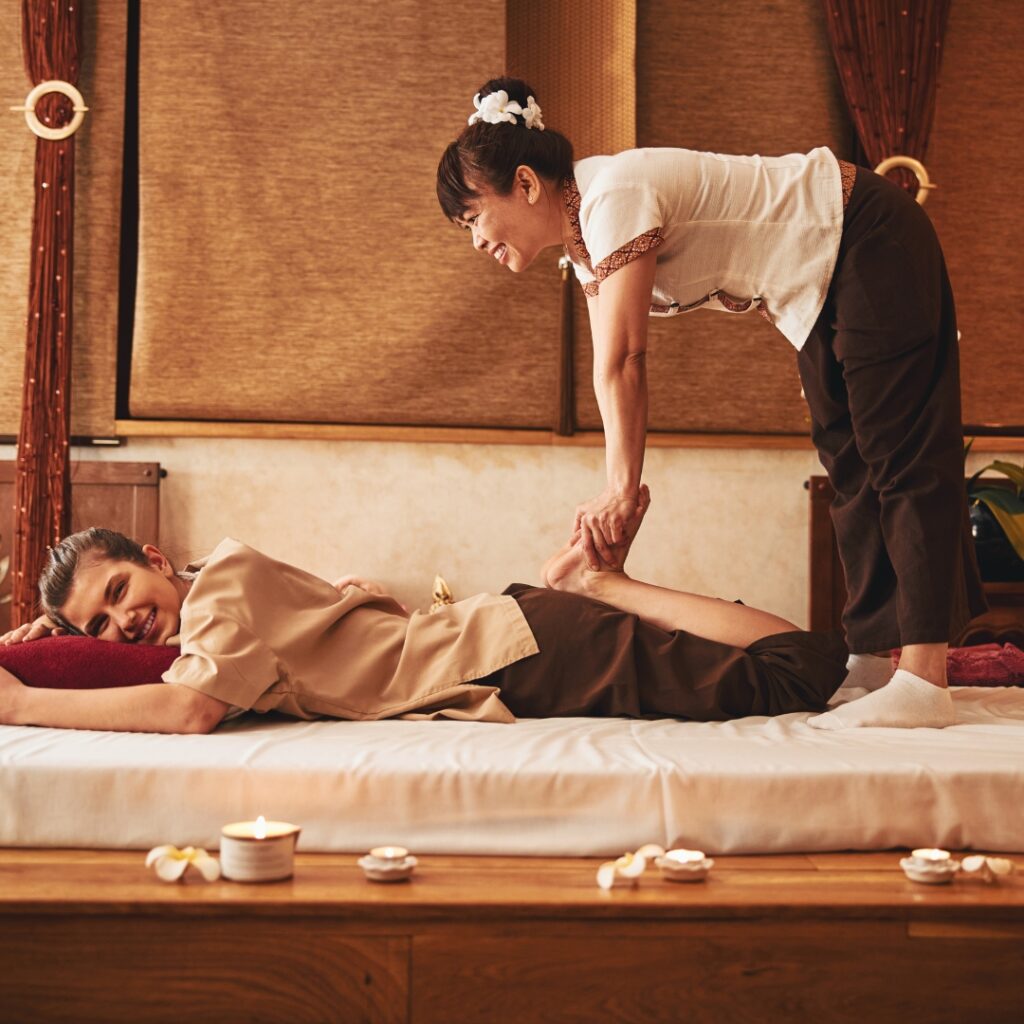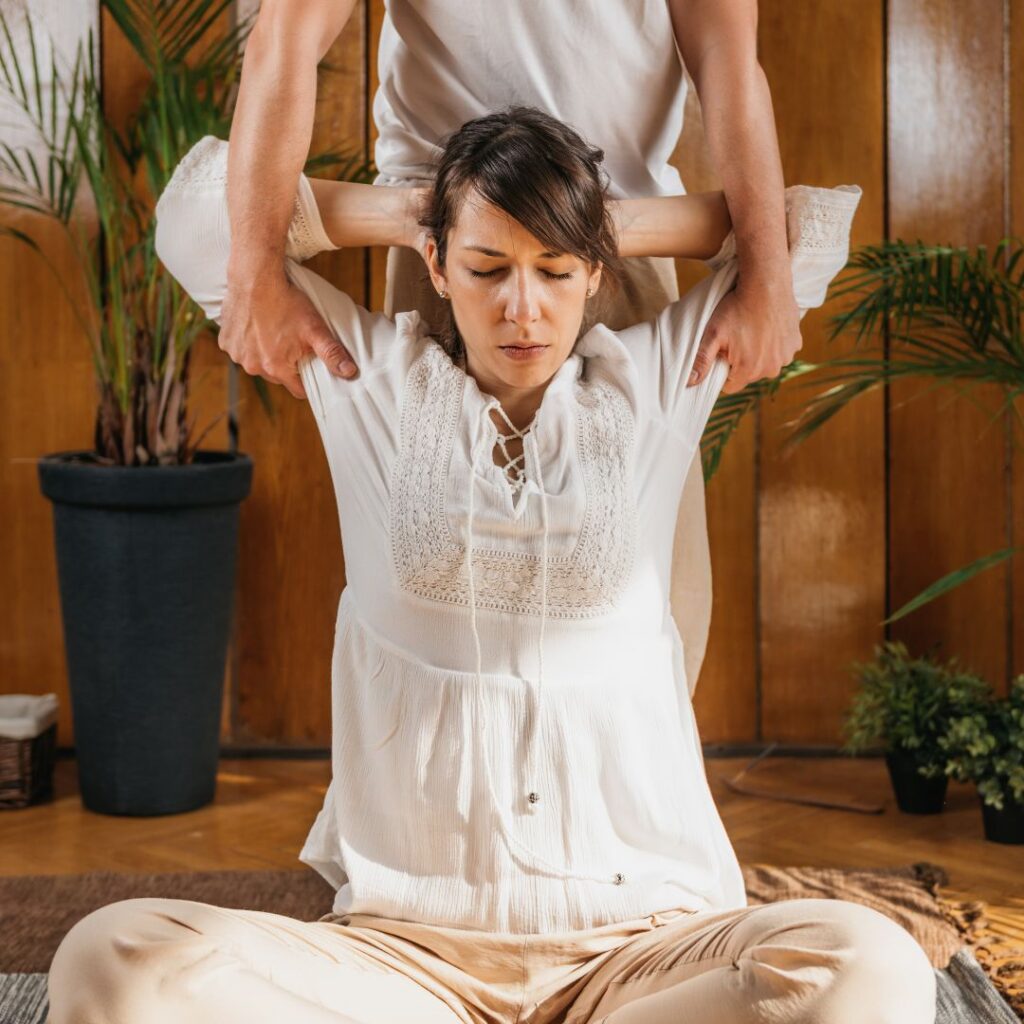Thai massage is an ancient healing practice that combines acupressure, assisted yoga postures, and deep tissue techniques to promote relaxation, improve circulation, and restore balance to the body. Known for its therapeutic benefits and calming effects, Thai massage has gained global recognition. For those interested in pursuing a career as a professional Thai massage therapist, it’s possible to master the fundamentals and become proficient in just a few weeks, though mastery comes with continuous practice and learning. Here’s how to quickly develop the necessary skills to become a professional in Thai massage:
1. Find a Reputable Training Program
The foundation of any successful career in Thai massage starts with choosing the right training program. To become a professional, you’ll need to enroll in a certified training course that offers comprehensive education in Thai massage techniques. Look for a program that includes:
- In-Depth Curriculum: The course should cover the basics of Thai anatomy, energy lines (Sen lines), pressure points, breathing techniques, and yoga-like stretches. An ideal program will provide both theoretical knowledge and hands-on practice.
- Experienced Instructors: Choose a training school with experienced instructors who are certified in traditional Thai massage. Many reputable schools in Thailand, such as those in Chiang Mai and Bangkok, offer immersive and practical training experiences.
- Accreditation: Ensure the school is accredited or recognized by professional massage organizations. This will make it easier to obtain employment or set up your own practice later on.

2. Commit to Intensive, Hands-On Learning
Thai massage requires a combination of physical strength, flexibility, and knowledge of human anatomy. To become proficient, you will need to engage in intensive, hands-on learning and practice the techniques daily.
- Practice Regularly: In Thai massage, repetition is key. Spend several hours each day practicing techniques on your classmates, friends, or family members to perfect your pressure and positioning.
- Physical Endurance: Thai massage is a physically demanding skill. The therapist uses their hands, thumbs, elbows, knees, and feet to manipulate the body. Over time, you’ll build strength and endurance necessary to perform treatments with precision and care.
- Flexibility Training: Since Thai massage often incorporates yoga-like stretching, it’s essential to develop your own flexibility to perform stretches effectively. You may want to include yoga or stretching exercises in your daily routine to improve flexibility and prevent injuries.
3. Learn the Core Techniques and Principles
To become proficient in Thai massage in just a few weeks, you need to master the core techniques and principles, which are the building blocks of the therapy. These include:
- Sen Line and Energy Flow: Thai massage is based on the concept of energy lines (Sen lines) that run through the body. Understanding how to work with these lines, applying pressure at key points, and stimulating energy flow is crucial for effective treatment.
- Pressure Points and Stretching: Thai massage uses a combination of acupressure and stretching to release tension. Learning the pressure points and how to apply the right amount of pressure is essential. Practice transitioning smoothly between pressure and stretching techniques.
- Positioning and Body Mechanics: It’s essential to learn proper body mechanics and positioning for both the therapist and the client. Understanding how to use your body effectively to apply pressure and perform stretches while maintaining comfort for yourself is critical to avoid fatigue and injury.
4. Develop Your Intuition and Connection with Clients
Thai massage is not just about the physical techniques but also about connecting with your clients. A professional Thai massage therapist learns to develop intuitive touch and gauge the client’s needs, adjusting pressure and movement accordingly.
- Read the Body: Pay attention to the body’s responses. If a client is tense, you may need to use gentler pressure. Learning to adapt to the client’s body language and needs is an essential part of becoming a professional.
- Communication Skills: Good communication with clients helps ensure that the massage is effective. Always ask about their preferences for pressure, areas of discomfort, or any injuries before starting the session. Throughout the massage, check in with your clients to make sure they’re comfortable and relaxed.
5. Understand Anatomy and Physiology
A solid understanding of human anatomy and physiology is vital for any professional massage therapist. While Thai massage incorporates a lot of intuitive work, knowing how the body functions and where muscles and joints are located will help you be more effective in your work.
- Muscle Groups and Skeletal System: Learn about the different muscle groups and skeletal structure, as Thai massage is designed to relieve muscle tension, promote flexibility, and improve joint mobility. Knowing how to work around the body’s muscles and joints helps prevent injury and ensures the treatment is beneficial.
- Energy Flow: Thai massage relies heavily on the concept of energy flow within the body. Understanding the relationship between energy channels and the physical body will enable you to balance the two effectively, enhancing the therapeutic effects of the massage.
6. Study the Philosophy of Thai Massage
Thai massage is not just a technique; it’s rooted in centuries of tradition and philosophy. To truly master the art, you need to immerse yourself in the cultural and spiritual aspects of Thai massage. These include:
- Mindful Practice: Thai massage is often considered a meditative practice. The therapist must maintain a calm and centered mind while performing the treatment, ensuring that the energy flows freely between themselves and the client. Cultivating mindfulness is important to delivering an effective session.
- Respect for the Client: Thai massage has deep cultural roots in Buddhism and emphasizes respect for the client’s body and energy. Always approach each client with care, respect, and professionalism.

7. Gain Real-World Experience
While it’s possible to learn the basics in just a few weeks, true proficiency in Thai massage comes from real-world experience. The more you practice, the better you will become at adapting techniques to different bodies and needs.
- Internships or Apprenticeships: Seek out opportunities to work under the guidance of an experienced Thai massage therapist. Internships or apprenticeships at reputable spas or wellness centers will allow you to refine your skills in a professional environment.
- Client Feedback: Actively seek feedback from clients to improve your technique. Listening to their experiences will help you learn where to adjust pressure, how to better support their body, and ways to enhance their relaxation.
8. Stay Committed to Ongoing Learning
Becoming a professional Thai massage therapist in a few weeks is just the beginning. To truly excel, you must commit to ongoing learning and improvement. Advanced techniques, like targeted treatments for specific injuries or deep tissue work, can be learned over time as you gain more experience.
- Advanced Workshops: After completing an initial training course, consider taking advanced workshops to deepen your knowledge in areas like therapeutic Thai massage, pregnancy massage, or sports massage.
- Continuous Practice: Thai massage, like any other therapeutic practice, improves with continuous effort. Even after certification, make a habit of refining your skills by practicing regularly, attending workshops, and staying updated on new techniques and approaches.
Conclusion
Becoming a professional in Thai massage in just a few weeks is achievable with dedication, the right training, and a commitment to physical practice and personal growth. While mastery of the craft takes time, you can quickly acquire the foundational skills needed to provide effective, high-quality Thai massages by enrolling in a reputable course, immersing yourself in hands-on practice, and connecting with clients. The journey to becoming a skilled Thai massage therapist is one of both physical and emotional growth, and with continuous learning, you can build a rewarding career in this ancient and deeply therapeutic art form.

